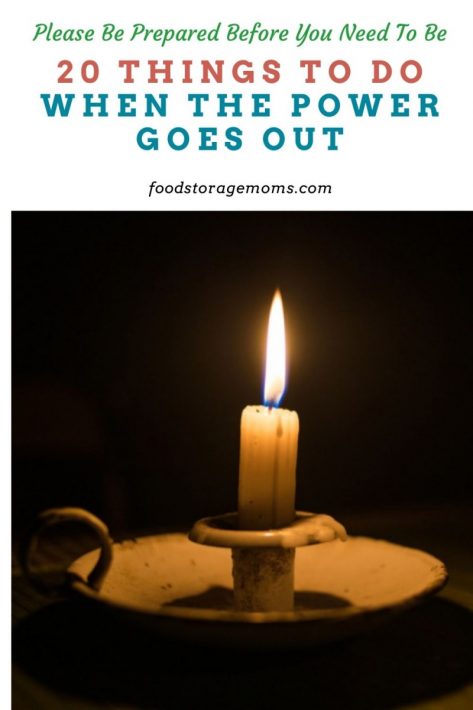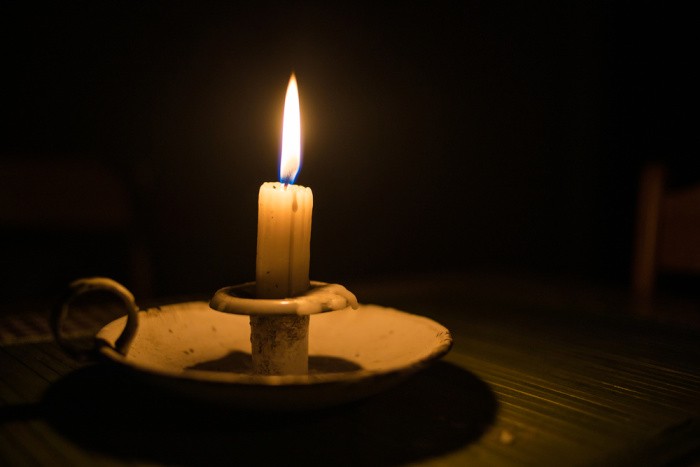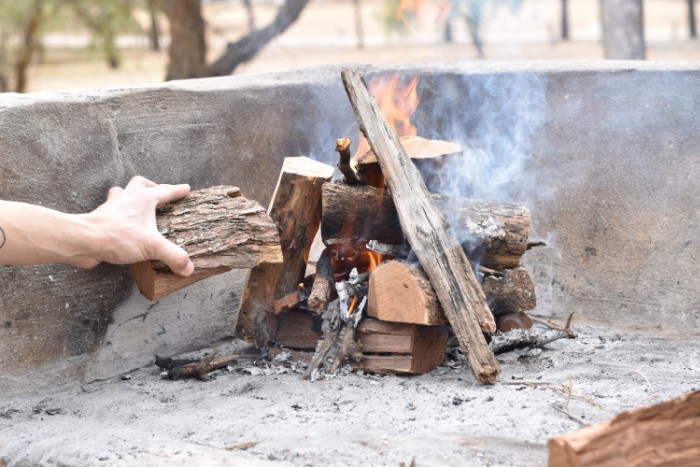20 Things To Do When The Power Goes Out
I’m not sure how my readers feel, but lately, it seems that there are so many news reports of emergency situations where the initial report states that: “thousands are without power at this time.” As I’ve thought about it, I figured there were at least 20 things to do when the power goes out so you are responding as best you can to the situation.
I’ve written a number of times about power outages and the items we’d need in our prep stash as we put our best efforts into being prepared. Today it isn’t as much of a review of “things” to have as much as “things to do.” Of course, our discussion will include those “tools” that will make your response more successful, but how you react to the situation is critical too. Invest in, Lights That Turn On When The Power Goes Out
“Bugging In” by our Raymond Dean White
“Olive Oil Lamps” by Ron Brown
“Prepare Your Family For Survival” by Linda Loosli
20 Things To Do When The Power Goes Out

So, What are the 20 Things to Do When the Power Goes Out?
Based on my own experiences with power outages, and some research on the subject to gather information about what others’ thoughts are, here are the ideas I feel will answer this important question.
- Grab Your Light Sources: most of us have put together a 72 Hour Kit, or something very similar as preparation for almost any emergency. Many preppers have assembled what they call a “Lights Out Box,” and it could come in various sizes based on your personal feelings of what is important. This handy container will have things like lanterns, flashlights and workable batteries, your radio that’s geared to work in emergencies, etc. I’ve mentioned many times, I favor solar flashlights and lanterns since they don’t require fresh batteries. If you visited my home today, you’d find the window sills that face the sun the majority of the day are lined with these solar light sources to they’re being “charged” every day. OLights are the best
- Protect Your Electronic Investments: in today’s society, we all have electronics in our homes that need to be protected. That would include our desktops, game consoles, mobile phones, laptops, and more. Some people feel comfortable with surge suppressors to protect these important work and communication tools. Depending on the quality of the surge suppressors, you may be ok. For me, I take the extra step of unplugging the units when we lose power so they won’t get hit hard when the power comes back on.
- Will You Have Water Available?:hopefully, the power outage is concentrated to your location and doesn’t cover a broad area that includes your local water treatment plant and/or pumping stations. As a precaution, consider filling your tubs and sinks immediately in case you lose water to your home. Note: if you have small children who may be subject to falling in the tubs, I’d rethink this step or take special precautions.
- Checkout Your Surroundings: it’s always wise to understand the extent of the power outage, if possible. If you go outside and look around, you can tell if your total neighborhood is without power. This may also prompt you to check on neighbors who could use special help or attention.
- Reach Out to Your Utility Provider: it would be good to know conditions from the true source. They may not answer the phone, but typically, they will have a recorded message for their customers. You may even find out an estimated time for power restoration.
- Tune In: that emergency radio mentioned in #1 above should be turned on and tuned in. Again, this is to gather as much information as possible. It would be wise to determine the local emergency station or frequency BEFORE THE EMERGENCY so you’re ready when things turn upside down.
- Get Your Family Involved: to help family members stay safe and engaged, make sure each one has a light source from the container mentioned in #1 above.
- Put Those Candles to Work: although I’m always nervous to suggest people light some candles, if you have sturdy candle holders and/or some thick Mason jars, you can feel more comfortable putting the candles to work lighting up a larger area than a flashlight can provide. If you have the solar lanterns mentioned, that is the best source for safe all room lighting.
- Protect Your Food: you may not have any idea how long the power will be out. You need to make sure food in the fridge and freezer are protected by limiting the number of times the doors are opened. Quality appliances should keep fridge food for at least four hours and freezer food for 24 hours. Consider cooking anything that has thawed, but be careful not to eat any tainted items. If in doubt, throw it out!
- Use Up the Perishables: if there is any indication that the power is going to be out for an extended period, you’d be wise to begin eating items that are the most perishable. That would certainly include any dairy items. Save those cans of tuna and chicken for later.
- Check the Weather: this may be most important during cold times of the year. You want to keep you and your family warm, so consider covering windows, huddling in a group for warmth, etc. Having extra coats and blankets available is a smart idea. If it’s hot outside, you might want to do the opposite and open windows and doors to try and take advantage of any small breeze available.
- Protect Those You Love: statistics show that crime often goes up in locations where the power is out. You’d be serving your loved ones well, including your pets, to keep them indoors and behind locked doors.
- Stay Charged Up: you’ve heard me harp about keeping your gas tank full, but that also applies to any devices that provide communication to your home, like cell phones and emergency radios. Invest in a solar charger or put your car charger to work.
- Make Your Portable Generator Your Friend: I don’t have a portable generator in my prep inventory. I worry about having the fuel safely available all the time. If you do have one, make sure you know how to use it efficiently. That would include having a safe way to store the necessary fuel it requires.
- Be the Entertainment Director: with the power out for an extended period, you and family members are likely going to get bored. Consider having some games to play, videos to watch, etc. How do you power them up? Read #16 below.
- Have Other Backup Power Sources: right now, in my garage I have some Goal Zero backup power units. The one with the largest capacity is a 1200-watt unit. It can be charged by plugging it into a standard wall outlet, or if the sun is out, with some solar charging panels. I’ve tested it with my wheat grinder, my Bosch blender, and other appliances. The best test yet was when we used it to power my son-in-law’s CPAP. It worked great!
- Try to Keep Things as Normal as Possible: yes, the power is out, but life must go on. The kids still need to do some homework, the meals still need to be prepared and served, and you still need to remember to take your prescribed meds.
- Personal Hygiene is Important: if you do have water available, taking a shower or bath, changing diapers, and staying hydrated are as important as ever. Try to stay comfortable and safe.
- You’ll Still Need to do Your Necessary Stuff: I was reminded when cleaning the garage recently, that even though we may not have power, we still need to relieve ourselves when I saw the DIY toilet I wrote about months ago. Again, as long as you have a “facility”available with the necessary toilet paper and some disposable bags, you can get things done.
- Don’t Forget Your Neighbors: if you’re lucky, you live in a neighborhood where people look out for each other. Be willing to check on others, particularly those who might struggle in a “lights out” situation. That might include sharing your resources like meals and extra blankets. Don’t be afraid to make a difference.
Final Word
Emergencies can hit us at any time. For some reason, they seem to be more frequent these days. You’d think in our high-tech-oriented world we’d all be better prepared for the unexpected, including the government and large utilities. I use the term “lights out” in item #20.
It reminded me of a book I’ve read many times that was written by Ted Koppel, the former TV news guy. He wrote a book titled “Lights Out” that’s about the fragile nature of our power grid system and the risk for problems that are eminent if the infrastructure in place within our national power grid isn’t improved. If you want some interesting reading, check it out.
Thanks for checking in today, and I hope you found this post worth your time. Let’s all stay prepared so we can say what the old Motel 6 ads used to tout, “We’ll Keep the Lights on for Ya.” May God bless this world. Linda
Copyright Images: Candle Burning Depositphotos_299002646_S






















I actually keep those harbor freight cheapie lights hanging on the lamp beside my chair, bed and bathroom. You know where the light is so your not hunting it.
My mom called once to tell me she couldn’t find her flashlight. I’m like you just called me on a flashlight. Mom says mean things to me occasionally
Hi Matt, oh my gosh, the flashlights you suggested are the best. I need to add that link again. I like the idea of the cheapie lights hanging on a chair, etc. I need light! Does your mom say mean things to you?? Oh my gosh, funny, not funny. Love it, Linda
Great list as usual, Linda. On protecting your electronic investment, we have every significant electronic device in our house plugged into an Uninterruptible Power Supply. In addition to providing for safe shutdown of your computing devices, these UPSs have excellent surge protection built in. Every one of our computers and its peripherals, televisions, stereo, etc. is plugged into one of these. We have seven of these UPSs in our house. One of them is dedicated as our phone and tablet charging station. For those devices, not only are they protected from surges, the UPS will provide enough reserve power to finish charging them if they are not fully charged when the power goes out. I would highly recommend this method of protecting electronic devices. Just my two cents worth, although these devices cost considerably more than two cents. But then, the electronic devices we are protecting cost considerably more than the UPSs as well as the agony caused if your computer gets fried.
Hi Harry, oh my gosh, I bet that’s what they used at a bank I worked for but larger than these that I will share with you. Is this what you are talking about? Oh my gosh, I am going to replace my other ones. Let me know if this is what you are talking about or another brand. This is the best idea ever! https://amzn.to/3FAUywJ I love this! Linda
Yes, those are the ones. I have four of the 600VA and three of the 850VA. APC is a great product and the batteries are replaceable when they finally do fail. It will beep like crazy when that happens to let you know that you need to replace the battery. The batteries are not cheap, but still less expensive than the whole unit. I would highly recommend the 600VAs. Most folks do not need any more than those. Definitely should have one of those on your computer.
Hi Harry, thank you!! I remember the beep, I forgot about it! Yes, I will get those when we get moved. Thanks for the great idea!! Linda
Linda,
Ted Koppel was right about the fragility of our power grid and to date nothing has been done to improve the situation. Our national power grid needs to be hardened against EMP’s and Carrington events. Failure to do so is, frankly, stupid. One would think utility companies would take steps to harden the large transformers (no longer made in this country and which can take years to replace) but they haven’t.
On an individual level we should all have backup generators and know how to use them. Failing that, we should at least have a backup power supply like a Goal Zero, Ecoflow or other battery, that could at least keep needed medical devices functioning for several hours until, hopefully, power could be restored.
I think one of the best emergency generators to have is a solar generator–basically one or two PV panels hooked up through a charge controller to a battery bank. From the batteries the current then flows through a pure sine wave inverter to a power strip you can plug your stuff into. My first one was a single 100W panel that charged a single Marine grade rechargeable 12V battery. I used it to power my CPAP when the power was out but it only lasted a few hours. I’m currently working on one that will use two 325W panels and a bank of rechargeable batteries that can keep my CPAP, fridge and freezers running overnight so when the sun comes up the batteries can be recharged. It’s a work in progress.
In the meantime I can charge up my battery bank with my car. Those interested in how to do this should see my book “Bugging In; What To Do When TSHTF and You Live in Suburbia” (which Linda kindly plugged at the beginning of this article) or Volumes 70 and 71 of my Dying Time Newsletter which is available on my website. Be sure you check out both volumes since I updated the info in the latter one. See link below.
https://www.raymonddeanwhite.com/newsletter.html
Hi Ray, you are so amazing, thanks for sharing this information. Plus, your newsletter link. I wish Mark was techier, I’m not at all. But, I’m thankful for what he is good at. My dad could fix anything. The good thing is, we are moving to our daughter’s property to build a small home and her husband can fix anything. LOL! I have a Goal Zero unit, they are awesome. Life is so good, Linda
P.S. I wish more people would read Ted Koppel’s book, it’s an eye-opener. Our infrastructure is so antiquated.
Ted Koppel’s book made me look at every power outage as a practice run.
Hi Janet, that’s a great way to look at it!! I love it! Linda
If the cell phone towers are without power you won’t be able to call out.If your house is without power your land line phone won’t work.If you have the old style Princess phone that plugs into the
wall jack you will be able to make and receive calls.
Princess phones can be found online and some times in thrift stores.They are relatively inexpensive
and are a lifesaver in an emergency.
Two is one and one is none.
Hi Chuck, oh I love this comment, you are so right. Thanks for reminding us! I love it! Linda
I bought an old landline type phone for when power outage occurs because the cordless uses electricity and won’t work.. Well, someone mentioned since installation of wifi on all our homes here, it won’t work.
I discovered this true when testing it in a bedroom with the phone outlets in the wall–tried in den, no go. When installing wifi, everything goes through wifi…so the phone outlets are totally disconnected to anything now.
Don’t wait to find out when you really need that phone–investigate now.
Hi JayJay, thank you for the information. I think some people are still on a hard phone line that is not through cable. Those lines would be for the princess-type corded phones unless something has changed. We had some phone lines on wifi through our cable company. They were useless when the power was out. Investigate is right, thank you, Linda
I agree about Ted Koppel’s book. I got it and read it several years ago. Very good. Quite an eye opener. There is also a good fiction book by Dee Henderson, “Lights Out”. This is one that got me started thinking about the stuff that will hit the fan.
I’ve been thinking a lot about all this and what I am lacking, Room by room in my mind. I hadn’t thought too much about about sanitation because we have a septic. But as I went from room to room it dawned on me that we had no sanitation for our ‘hidden room’. So off I went to get the luggable loo from fleet farm. A 13 gallon, heavy duty bag works great in it. Instead of TP I have a paper towel roll cut in half, it has the 1/2 sheets. Costco ones are soft. A bit more heavy duty. Should last longer. I just packed in things I will need in an emergency.
For Christmas the ‘kids’ will be getting a loo packed and ready to go. They will be thankful when an emergency comes around. Can’t wait to see their faces. 😉
City sewer is going to be a real problem or there is a permanent lights out.
How do I give 5 stars to your articles?
Hi Mary, you are so cute it should be where you comment for the 5 stars, you are so nice. I tried to find the Dee Henderson book, can you check the title again? Or maybe it’s sold out on Amazon. I love the idea of the Luggable Loo! PLUS, what a great Christmas gift! You rock! You are so lucky to have a septic tank! Yay! Linda
Oops!
It was Terri Blackstock series of 4 books. Last Light, Night Light, True Light and Dawn’s Light.
I should have checked before I sent it. I read them in 2005. 16 years ago! OMG.
Hi Mary, oh, no worries! LOL! I totally get it! I want to read them, thank you, my friend!! Linda
Hi May, I got all four, thank you!!!! I can’t wait to read them! Linda
I really enjoyed this series!
Hi Dawn, oh, I love hearing this!! Thank you, Linda
For those of us who have prepared for this very thing, no problem! What I do, however, before the lights go out, is get my bin out, front and center!! I don’t want to have to scramble at all to find it.
I live in an area where power outages due to storms are not frequent but if I hear of a storm coming in, I fill my extra 5 gallon water containers and my bathtub so I have plenty of water for washing, filling my Berkey, etc. Just an extra bit of insurance. I have quite a bit of water stored but not nearly enough because of space limitations.
As for lighting, I have my 2 emergency flashlights that stay on the power strip but turn on immediately when power is interrupted. Love those things! I also have a couple of head lamps and batteries, regular flashlight with batteries, an oil lamp, a propane camp lantern, several emergency candles.
Thank you, Mary in mn, for the book recommendations. I got the first book as a free Kindle offer. I’ll read it first then see if I want to read the others.
Hi Leanne, I need to add those lights that turn on when the power goes out, I love those too! Great comment! It feels good to know you have a bin to bring out and prepare! Love it, Linda
For those of us that live in the rainy PNW solar isn’t an option so a generator is the best. We have more that one and the gas to power them. Food and water are also needed as mentioned before. The book Lights Out is excellent! I have read it over many times. We need to be ready for whatever comes our way.
Hi Cheryl, it is a good book, I wish more people would read it. Having a generator is awesome, Cheryl! Linda
Don’t forget that winter weather can be used to your advantage when it comes to preventing food spoilage. Before we had a generator, if the power went out in the winter we would use a heavy cardboard box to put our refrigerated food into and set it on the deck if the temperature was below 40 degrees. If it was 20 or below we did the same with the frozen food. If it is real cold you may have to be careful about your refrigerated foods freezing. In our case we have a fully enclosed unheated basement entryway that gets some warmth from the house so it stays a bit warmer than outdoors. We used our natural gas stove for heat, being careful to have enough ventilation so as to not have a problem with carbon monoxide. The generator has been a great investment.
Also many utility companies have outage maps on their website if you are able to access the internet. My phone is via internet so I have an uninterruptible power supply on that equipment so I still have phone service and internet while I get the generator setup and online. My wife though it was a waste of money until the first power outage. And yes, I have an old fashioned phone downstairs hardwired into the phone equipment.
Hi FeralFerret, great comment, thank you! A hard-wired phone is awesome! I moving next week back up to snow country. I have used those boxes outside when we lost power, great reminder. Having a generator you can sleep at night knowing you are prepared. Good Job, Linda
An article I read suggested ” Ramping it up” if there is any advanced information that a power outage may be coming your way….ie- storms or brown outages. They say, if it’s cold out turn up the heat, above what you usually do, and if it’s hot, crank up the ac. In the short term, if your home is well insulated, it will help you stay comfortable for a while.
Hi Chris, that makes total sense. Cool or heat your home before the storm. Mark and I tested our home in Southern Utah and it was 100 or 110 degrees outside, our A/C went out. It was 80 degrees in our home. It was tolerable. We used our ceiling fans, we could use battery-powered fans if the power was out. Great comment, Linda